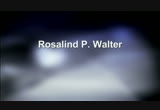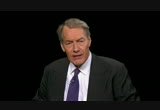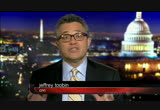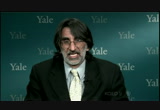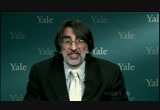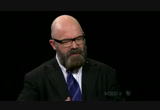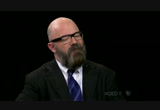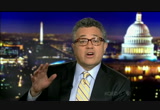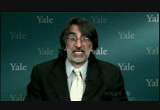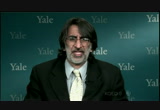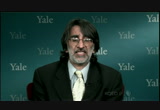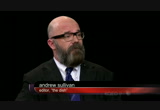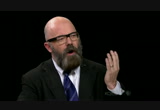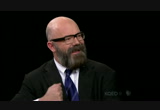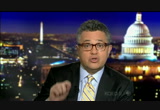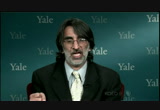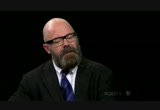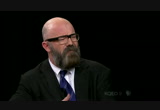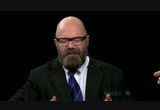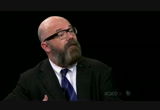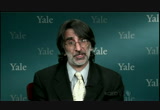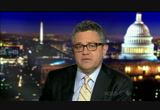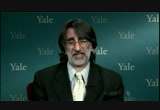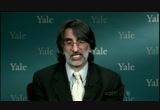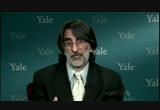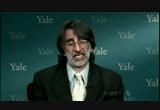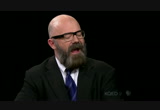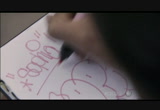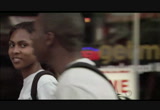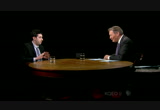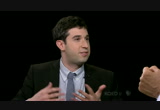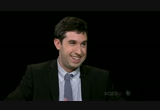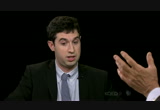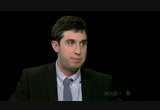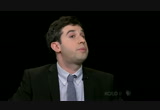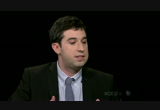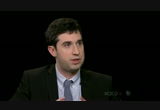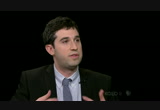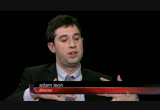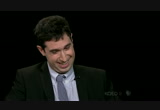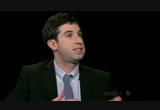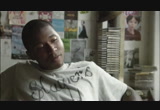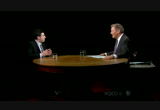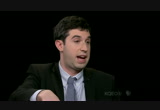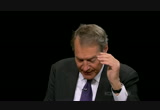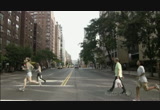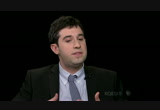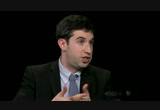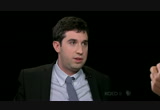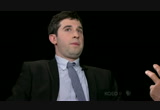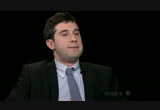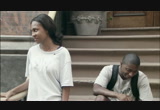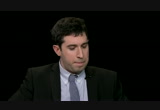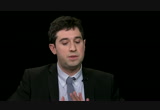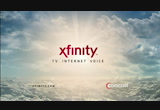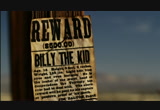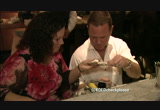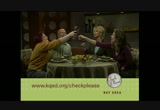tv Charlie Rose PBS March 26, 2013 12:00pm-1:00pm PDT
12:00 pm
captioning sponsored by rose communications from our studios in new york city, this is charlie rose. >> rose: it is an important week for the united states supreme court. starting on tuesday, the court will hearing amounts in two cases involving the legality of same-sex marriage. the nine justices will first consider an appeal of an earlier ruling that rendered california's proposition 8 unconstitutional. the 2008 ballot initiative banned same-sex marriage in the state. on wednesday the court will consider the constitutionality of the defense of marriage act, the 1996 law states that the federal government will only recognize heterosexual marriages. the arguments come at a time
12:01 pm
when public opinion is shifted in favor of same-sex marriage. these two cases also promise to shape the legacy of the roberts court. joining me from new haven, connecticut, akhil amar, he's the sterling professor at yale law school. from washington, jeffrey toobin of cnn and the "new yorker" magazine. with me in new york, andrew sullivan, the author and editor of the dish blog. i'm pleased to have each of them here as we look forward to tomorrow and wednesday. a historic couple days at the supreme court. jeffrey toobin, i begin with you. what's -- tell me about the court deciding to consider these cases now and hear them on consecutive days. >> well, that is major event in american history. i don't think i'm overhyping it to say this. you know, the supreme court has never said is s it okay -- has never answered the question is it okay to put gay people in one category and straight people in another and say we're going to give government benefits--
12:02 pm
whether it's marriage, whether it's tax benefits, whether it's access to child custody-- we're going to give benefits to straight people and keep them away from gay people. that's the core question at the heart of both of these cases and we're going to know a lot more about the answers starting tomorrow at 10:00 in the morning. >> in the largest view, no matter what the supreme court says this term, my prediction is we're going to have gay marriage everywhere in america even if the supreme court doesn't do it this term. very soon, within the next five to ten years. that's just because of larger trends with the people themselves and played out in the states. we're in the midst of a massive social revolution and the question is whether the supreme court is going to be exactly with the tide, a little bit ahead of the time or a little bit behind the tide. >> the reason this is so interesting is that a lot depends on how you measure. if you look at the number of
12:03 pm
states that recognize same-sex marriage it's only nine and that's a minority. but if you look at poll data, i think a decisive majority of americans are in favor of this and that's unlikely to change. that will probably only increase. california several years ago, the people of california rejected gay marriage and put in their constitution an anti-gay marriage, proposition 8. if they were revote that today i think result would be dramatically different so the question is will the supreme court justice, in effect, count the states as it sometimes has in various contexts, cruel and unusual punishment or elsewhere, or will it look at other indices of broader public opinion and to what extent it actually thinks that public opinion matters. >> rose: measure the velocity of the change after not seeming to go anywhere for so long. >> when we started-- and i wrote
12:04 pm
the first piece in '89 in defense of this-- and for the first five years they laughed at you. (laughs) seriously. gay marriage? they were like -- they were laughing. and for the first ten years people forget this but it was the left that was -- that was opposed to this. thinking it was -- i was a patriarchal trying to join an institution that oppressed women for centuries, i was a suspect because i was a reaganite and so on. evan wolfson was the great liberal pioneer in terms of the legal work and we were forever a 33, 33, 93. 33 marriage, 33 something else please 33 never. and to have moved it, it's taken 25 years and i must say we persuaded the gay community first and i would also say this. i think aids epidemic cannot be discounted from this issue.
12:05 pm
it was then that we saw spouses barred from the hospital rooms of their dying loved ones, cut out of their apartments. it revealed that we were vulnerable. >> rose: it gave an you are general any. >> for me personally and a lot of us in this movement we were doing this for our dead friends, to make sure they didn't die in vain. and to make sure no one would have to go through that again. and on the other hand, many lesbians were beginning to have children and realized they had no protections over their own children. that they could be taken away from them by their own families, next of kin, legitimate next of kin and they weren't recognized. so all that came together create momentum and we knew that they'd have to lose. we knew going into doma when i testified in '96 that we were going to get creamed. but my view and i think view of all of us in this movement was that we will lose but every time we lose we will make an argument and every time we make that argument someone will hear it
12:06 pm
then every time they meet a gay person they will say do i want to deny my son, my daughter, my friend, my co-worker these rights? that's what shifted. what shiftd is from the low. the latest poll shows 81% of people under 30 support this. >> rose: jeffrey, i want both you and akhil to help me one more time understand the legal arguments that will be made. i mean, what's the argument for proposition 8? >> well, the argument is -- what they're saying is we had an election and i think ten million people voted that we want traditional marriage and those ten million people are not bigots, they are not criminals, they are simply people who want to maintain the status quo which it has been for hundreds of years. and it's not the place of the courts, these unelected judges,
12:07 pm
to overrule a view that was held by a majority of americans very recently, including the president of the united states, it is simply not the place of the courts to overturn the judgment that the people of the state of california made. that's the argument against it. >> rose: and what's the argument for it, akhil? >> well, i think jeff stated it very well, very forcefully. and one argument of judges to abstain is not become the issue themselves. even if you believe in gay marriage, let's keep the focus on equality rather than judicial activism because it's going to happen in california whatever the courts do so i could imagine a justice who favored gay marriage saying "let's not inject ourselves into it, let's keep the focus on equality because equality is a timeless ideal." and technology has changed, sex has been severed from reproduction through i.v.f. and other kinds of technologies, gay
12:08 pm
men can have biological children and so can lesbian women and we now may believe that there's a biological basis for sexual orientation that that's not a ridiculous proposition that maybe people didn't focus on that before. the states have moved, the country has moved, the public opinion has moved and that's relevant to whether this is really just a remnant of an idea whose time has passed. and if you look not at the past-- as jeff i think correctly did, that's what the conservatives argue-- but if you look in the future i predict not only will there be gay marriage soon enough, but in 30 years we will look back on this era with a kind of incomprehension, the same sort of incomprehension that people today look back and say how could they have believed in savory? how could they have believed in segregation? that 81% andrew mentioned is not going to change its mind as it grows older. >> that's a very inspiring statement about the arc of history. but can i just talk to akhil
12:09 pm
about a group of people called the republican party? there's been a lot of loose talk about how the republican party is evolving and changing. nonsense! there is exactly one united states senator who's a republican who's for same-sex marriage. the republican party is united against same-sex marriage. and the idea that they are going to somehow change and that -- akhil you said you think there's going to be same-sex marriage in ten years in this country? you think texas and mississippi and alabama the state legislatures are going to vote for same-sex marriage? no way! not gonna happen. maybe i'm wrong but boy i'm sure not wrong yet. >> here's how that's going to happen. even if texas doesn't have same-sex marriage my thought is very soon the supreme court could come in and simply say that states that don't have same-sex marriage have to recognize same-sex marriage is
12:10 pm
celebrated outside the state. then it turns out that all you have to do is go to massachusetts or washington state or maryland or anywhere else for a weekend, get married and your home state has to recognize that. and the same way that nevada divorce once it's recognized in the other states sets the standard. that's my thought about how it happens pretty quickly. >> that's different from the country changing. >> i don't think it happens that way at all. >> rose: let me hear from andrew. >> i don't think it happens that way at all. if it did we'd already have other states recognizing current states' marriage. the full faith and credit clause doesn't apply to marriage licenses. it does happen to apply to divorce contracts and that's a critical distinction. my worry-- and i think one of the paradoxes of this-- if i were karl rove right now i'd be praying for "loving v. virginia. " it takes it off the table and -- >> rose: what is "loving v. virginia?" >> that was the landmark case which finally struck down anti-miscegenation laws in the states that still held them at
12:11 pm
the same which were still very popular in those states, i have to say, at the time. and what happened until now was that gay marriage was a wedge issue which got the republican votes. increasingly their attachment to being against this and being hostile to gays is losing them generation after generation. >> rose: karl rove would want it to be taken off the table? >> taken off the table and democrats would use it as a wedge issue against them. my view, for what it's worth, is that i want the court to take a rather restrained view on this. i think they should absolutely say one, if your state marriage is valid the federal government has no option but to recognize it. my marriage license in massachusetts is identical to the marriage licenses of every straight person so on what grounds does the federal government make that decision? it has no right to. and the second issue i think that i hope for that in that in the other states that have civil unions-- which will
12:12 pm
substantively exactly the same as marriage but where they deny them the name marriage-- the court will come and say "why? we understand if you really don't like this why you wouldn't give them these benefits. but if you've given away the substance of the argument, why are you withholding the name? unless it's stigma." so my dream result (laughs) is that we'll add eight states to the numbers and that i don't -- look, as a moral question, charlie, i don't want anybody to tell me they were forced to accept this. i think if we have no public support, if we were isolated and marginalized i have no way of getting this democratically that would be one thing. but we're winning! and we're doing it the old-fashioned way by changing people's minds, getting legislatures, getting initiatives. next year i think oregon will be the first state to overturn a constitutional amendment. that i want process to go on because i think that process is edge aive the. and i want the day to come when
12:13 pm
alabama will vote for us. it may not be in my lifetime but i want it to be on their time. >> andrew's view was very much like that of ruth bader ginsburg who i just did a big piece on in the "new yorker" and she implied much the same thing. let's not interfere with the political process. >> rose: you mean speaking about "roe v. wade"? >> basically she said the court went to far in "roe v. wade." they should have just sin validated the law in texas and let the country come along. that's all well and good. but the counterpoint to that argument is what if you are a young gay man in texas and you want to get married and you don't want to go to somewhere else because you're a texan and you live there. why should at no time constitution apply to you two today? >> one nice thing about what andrew mentioned is he invites us to think about "loving v. virginia" case alongside, in effect, "brown v. board of education." here's bra what brown said.
12:14 pm
everyone thinks brown in 1954 said plessy is overruled. it didn't. it said "you know, plessy, that was a transportation case, this is an education case." and that looked like a ridiculous distinction, a little like saying "eight states have to recognize gay marriage because they have civil unions, but not the rest. the states that are better toward gays have to go all the way." that looks weird from a certain perspective because it's transitional. but when you understand it's ultimately transitional to a world in which everyone will be recognized in gay marriage and the same with brown was ultimately transitional. ultimately "brown" came to stand for not just in education you couldn't have segregation, but you can't have segregation anywhere. so brown was 1954 so 13 years for its logic to extend to its full extent which is equality everywhere on beaches, in buses, in golf clubs and within marriage and so, too, even if we don't get full equality this
12:15 pm
year i think we are on track for eventually getting to a "loving v. virginia" like idea where it's universally the law of the land. is. >> rose: this is what justice kennedy said speaking last month at an event in sacramento. a democracy shouldn't be dependent on what nine unelected people from a narrow legal back sground to say. (laughter) >> rose: >> he's right! >> rose: why are you laughing, jeffrey? >> because as so often with justice kennedy much as i admire him i'm like what? what does that mean? i don't know what that means to tell. >> rose: andrew is here to explain it to you. >> well, the difference between roe. have wide is that abortion actually remains a divisive subject in the country, among the young as well as the old and it's dealing with a much more profound moral question-- life and death. this is not as -- i don't want to demean the importance of marriage, i think it's crucial. so the question is, is the court
12:16 pm
actually going to -- are things moving so fast that i'm wrong? the court should seize this moment and will actually crystalize a moment and put in the clarity and i can see kennedy -- you know, he's going retire at some point. this is the civil rights movement of our time. if he were to rule and be the key case in making this such a grand decision that will be a huge legacy for him. and also scalia has already conceded this. he conceded it. he said "if you agree to the premises of lawrence v. texas you've conceded the case to gay marriage." he said that in his dissent so i think they've given the game away, in many ways. my question is am i too conservative now? am i trapped by my own past? would the 19-year-old today not think i was a fuddy-duddy even though when i was 19 i was regarded a a crazy liberal? so i think it's all history and
12:17 pm
timing. and i don't want to court to ruin this. i want the court to do it right. i'm not quite sure what that will be but i don't think it's a sweeping national decision. >> rose: akhil. >> one side says equality now, i want to get married now and i don't want to have to travel for a weekend and andrew's position, which i think is thoughtful and itch some thifrp think with it is equality enduringly. and it might be more enduring if it's felt to be more organic and bottom up and forcing folks to do it democratically actually has certain benefits in terms of creating a coalition and educating the other side and preventing ponts from changing the subject from equality to judicial activism. >> the legislative debates in which the children of gay parents stand up and testify, the court cases in which these people come out and talk because the truth is there are as many gay people in alabama as in massachusetts.
12:18 pm
unlike any other minority, we are scattered randomly to the winds as it were and they will come forth. the process of doing this has also been a process of getting gay people to believe they're worthy of this yes, it is! it's about getting the self-confidence. the question for me was always not why are we seeking the right to marry. it's why did it take us so long to ask this fundamental question about our love and lives and relationships which have always existed. i think gay people now, the next generation, regard it as non-negotiable. so either this court will have to go to war with that next generation now and be called out later or they may reach passed us to that yuk generation and make america in their image as hoob has. >> rose: is this in any way a test for the chief justice of the supreme court, jeffrey? >> oh, boy, i think this is a fascinating test for john
12:19 pm
roberts because john roberts, unlike, say, justice scalia, recognizes that he is is custodian of the court's public reputation and i think this is deeply bound up with his vote in the obamacare case. justice scalia is a spokesman for a position that is heart felt but that he knows does not command a majority on the supreme court in certain circumstances and certainly not in the country. john roberts know which is way the country going. john roberts is also no liberal. and those two ideas that are in conflict and he's going to have to resolve it somehow. >> but they're not in conflict! >> and he's not just chief but he's younger and will have to live with this decision personally longer actuarally and i -- unless you smi these young people will change their mind when they grow old-- and they will on taxes and other stuff--
12:20 pm
they'll become more conservative but not on this. >> what's happening is even young evangelicals are beginning to say drop this, please, it's hurting christianity. >> we heard of a fascinating story in the "l.a. times" about how john roberts' cousin is a lesbian, an out lesbian who wants to get married in california. john roberts is from a very conservative catholic family in northern indiana. but he has a family like everybody else and frankly most people in this country now know gay people through their families, through their work, through their friends in a way that has changed. and i just think that -- i don't think john roberts is going to vote for his cousin but i think that is just revealing. >> rose: i come from a conservative catholic family, too. (laughter) my view is that the conservatives who get this, like ted olson, get it more than some liberals. why?
12:21 pm
because as david cameron, the british conservative prime minister says, he says "i support gay marriage not despite being a conservative but because i'm a conservative! those arguments that i was making yearsing that are now -- >> rose: because you're a conservative you should support this. >> of course! why would you not want to encourage fidelity, responsibility, taking care of one another? if you're a small-government conservative, what does a marriage mean? it means that one person is designated in civil society to take care of his or her spouse. not the government. >> rose: talk to me about doma, the defense of marriage act. and where does that take us and we remember for a moment that that bill was signed by president bill clinton. >> well, we've been talking about equality and we've been talking about federalism, about how many states are on one side and how many states are on the other. the doma case, the defense of marriage act case, involves equality and federalisim in a slightly different way. the question is whether the federal government can define
12:22 pm
marriage as one man, one woman, even for people who are lawfully married in their individual state. and one argument is just the equality argument that if you believe in gay marriage in each state and the federal government these do it, too, and there might be four justices or three justices that believe in that, but if they can be added to justices who believe in federalism, who think this should be decided by states and the federal government should not disregard state policy then you could have these federalism justices added together with the equality justices and maybe get to five. the weird thing about that argument, again, maybe a transitional argument is the federal government could say listen, why can't we for our own purposes, for federal tax purposes and federal social security purposes have our own definitions of things? and so i'm not sure i buy the federalism argument but it doesn't matter whether i buy it.
12:23 pm
it matters whether justice kennedy buys it. >> you know, akhil, as well as i do, that the federal government never had a position on marriage for 120120 years of anti-sis miscegenation laws. it just recognized which ever state, which ever marriage was legal in whatever state. in this country it's always been a state's issue. the only -- the first time in american history ever went federal was 1996. so the diversion is to get rid of that and let the states decide. >> i think you're making this case more complicated. >> rose: let akhil answer. >> that argument might appeal to justice kennedy but remember justice kennedy used that same argument to say obamacare was unconstitutional because we never had anything like obamacare before. i don't love that argument that just because you haven't done it before that's a strong argument for that's unconstitutional but justice kennedy might. >> rose: jeffrey? >> edith windsor was married in
12:24 pm
canada, a marriage honored by the state of new york, new york and her spouse died. if her spouse was a man, the money would have gone tax free to her. but instead because she was married to a woman she had to pay $363,000 in taxes because the i.r.s. doesn't recognize their marriage. what is the justification far? i think that's a very tough case to defend at this point. i think doma is doomed. i think the only reason is just pure animus, dislike of gay people and i don't think anthony kennedy will sit still for that and i think there are five votes -- forget the whole federalism issue, it's a straight up equal protection argument that you can't discriminate against people like that. >> but if it is, why can the state do that by not recognizing the marriage in the first place? i'm for that but if you take seriously that equality argument jeff, that if she were married to a man she'd get the benefits
12:25 pm
but not if she was married to a woman, the deep logic argument is same-sex marriage everywhere, i'm for that. but i don't know if justice kennedy is yet. >> but you could write that opinion to limit it just to doma. you're a law professor, you can do a slippery slope in your sleep. (laughter) i'm talking about one case at a time here. >> i think at some level jeffrey is right, this is about core equality, core citizenship. the freedom to mar marry is based in the declaration of independence st. i don't think any heterosexual, for example, has ever believed they ever had the right to the pursuit of happiness if that did not include the right to marry the person they love. so in the end it's the deepest question at all. are we gay people as americans allowed to pursue happiness? and if that right to happiness does not involve marrying the person we love then what does it really mean? what could be more important to one's happiness than that? this is about ending pain.
12:26 pm
it's about bringing about happiness. not assuring it but giving us gay people the chance to pursue it. >> rose: thank you, andrew sullivan. >> thank you. >> thank you, jeffrey, thank you akhil. >> rose: adam leon is here. he is an up and coming director whose feature film debut has critics and filmmakers talking. the movie follows two graffiti writers from the bronx who plan to tag the home run apple at city field. jonathan demi calls the movie "a motion picture debut." here's the trailer for "gimme the loot." >> anybody living up in this fine city knows that this goofy apple pops out of the stand and everybody goes crazy. somebody's going to write graffiti on that a, their name is going to bring out in our world. >> we're gonna bomb that stupid
12:27 pm
ass apple. everybody gonna see our names. we're going to call pedro, he gonna sneak us in. >> everything was good, he was like show up. $$500? >> yeah! >> how we gonna get the paper? >> keep our eyes on the prize, man. >> you always saying we're going to be the biggest writers in new york city. do what you got to do to make that happen. >> there's this girl jenny, private school girl. >> i know how to get it. >> that's my partner, though. >> you sure? y'all seem really close, man. >> you're not the ducking me or anything are you? >> like you couldn't take no
12:28 pm
stairs man? >> they're used! she's, what, pretty? >> rose: i'm pleased to have adam leon at this table for the first time. welcome. >> thank you so much for having me. >> rose: it's a pleasure. >> the pleasure is all mine. >> rose: (laughs) tell me about this movie because you've wanted to do this since you were about five. >> i think since i first knew that you could do it. i would go to sleep at night imagining my own "star wars" movies and it was like well somebody actually made these movies. >> rose: maybe i can be one of
12:29 pm
those people. >> right! so i've just worked at it since then in many ways. i was -- as a kid it was very kind of -- i knew all these kids who -- you know, they say they want to be a fireman and a week later they want to be -- and so i wouldn't tell anybody that i wanted to do this until i was a teenager. >> tell us how you got there to make this film then we'll talk about this film. >> great. i didn't go to -- i didn't study film in college sort of purposefully. a few people told me if i really knew what i wanted to do and i felt like i had a point of view on it just do a general liberal art bus i started working while i was in college. i was a p.a. for woody allen for a couple years. >> rose: you went to pennsylvania and had access to the dooefs you could get your hands on. >> i discovered this d.v.d. library at upenn and do my own cinema studies every other night watching a classic movie. sy started writing my own stuff then, doing short films and music videos then i worked at film festivals, just whenever i
12:30 pm
could i would jump on a production and i co-directed a short film a few years ago that features the lead actor in "gimme the loot" ty hickson and i was working with non-professional kids all over the bronx. >> rose: so you were out will there like a sponge soaking up everything you could possibly do because you wanted to make a movie? >> right, so film festival jobs were great because you're in the industry seeing how that machine works and then you get -- you work for three months then there's a couple months off where i could write, i could go and shoot just a little goofy short on a small camera so i could try to keep the craft up but also meet people and make connections and just always be working towards that goal. >> rose: and you got to work with woody allen. >> i did, yes. >> rose: (laughs) >> not bad. >> rose: did you tell woody "what i want to be is you"? >> i think everybody's p.a.ing for woody wants to be him. but obviously growing up in new york it's the law to -- you have to grow up watching woody allen movies, you get fined if you don't see that.
12:31 pm
>> rose: this film that you made new york is a character. >> absolutely. a huge part. we wanted to show a part of new york that isn't seen so much on movies and t.v. right now, i think. because a lot of people i know talk about the -- how new york's become a mall and the big box stores and i think that that's a part of new york but that there's still this energy and there are these neighborhoods that are very much alive and very much still neighborhoods and so we wanted to go out to the bronx and show that. >> rose: i want to come back to the film and show that. you're working for woody? >> working for woody. i was still in college when i first started doing that, just a p.a. on set and i was editing intern which was very instructive. >> rose: you're taking notes or just recording -- >> yes, yes. and mental notes constantly. it was an incredible experience. i was able to be on set a lot which was phenomenal but i think i learned so much in the editing room watching him put together this movie and just that -- this
12:32 pm
master craftsman every morning getting up and keeping his foot on the gas really having no sort of mercy for things that weren't working moving the project along every single day. that idea of how do we make this movie and how do we make this movie better constantly being the question. >> rose: so of all the things you learned before you went out to make this film, what was the most important? >> i think it's that. i think it's the idea of you -- >> rose: go full stop? >> you have to -- yeah, always. you have to -- when j.k. rowling was on her show she talked about the idea it that's not all fairies and inspiration all the time so you have to wake up everyday whether it's in the writing or obviously production you don't have a choice where the editing room and you have to keep at it you have to keep going at it. then i think other key element is -- and woody has this is the idea of team building, the idea of surrounding yourself with
12:33 pm
people that are incredible at what they do. >> rose: an ensemble of characters. >> and they care so much about what t project. more people that you can get involved that care deeply about making the this movie the better and that's true for anything. >> rose: so do you finally decide i'm ready to go, i've learned everything i can or do you simply have an idea that is dying to get out of you and you want to make it into a movie. >> i think it's a combination of both. i felt that i was ready to do a feature. then i had this idea and i felt that it very much should be a first feature. it very much should be a low budget movie. i think it this movie would be worse if we had $50 5-million to make it. >> rose: did it cost you about $200,000? >> a little less than that. but if it works that's part of the charm that we're just taking to the city streets, really using actual kids and people from new york city and capturing
12:34 pm
hometown. and that it's okay if there was roughness to it because that energy would help fit with the story. it's always about the characters in the story and this the characters in the story lent itself to that kind of film making. >> rose: why this story? >> i really -- i had -- i grew up in the city and i was working with these kids -- these working class kids, kids from tough neighborhoods and they -- i knew this because i went to public school but i was really taken with this idea that there are these kids and they have it tough and we never wanted to sell that out. they don't all lead miserable lives and that was the story that i felt that i was seeing a lot told if you go up to the -- if you're going to tell an inner city story. the kids in suburbs -- >> rose: and what's interesting is not simply that they do bad things or bad things happen to them because they didn't have a normal sort of -- >> right, that they can still be
12:35 pm
kids, you know? and that in many ways -- it's a tougher existence, you want to stay true to that. >> rose: the reality of their life you want to show. >> exactly. at the same time they still -- i think it humanizes them more as characters and people to show that they can go and have fun out into the world and that this is their city and not that different than the kids in "dazed and confused" or "american graffiti." >> rose: where did you get the script? >> i wrote it, that's where i got it. >> rose: (laughs) >> i had a job and i went nights and weekends just writing and rewriting and continue to develop it. >> rose: were you sharing it with somebody? >> i wrote a first draft in about three months, four months then i started -- i showed it to ty who i knew and he was able to help with the authenticity elements of it then i brought on the first producer, this girl named natalie gifford. she didn't want to do it. i think she liked the script but had a full-time job and i nagged her until she -- i told her -- i
12:36 pm
said we're going make this movie and we'll change your life for the better. and she was like no. >> rose: but it did. >> i think so. you have to ask her. i hope so. i got her on board and then it continued to be right. >> rose: casting. how did you handle that? >> it was a mix of things. we had ty and basically anybody --. >> dave: ty plays malcolm. >> and anybody that's in the -- you have to grab what you can when you're making a movie at this budget. i have this kid who i think can handle it and i have a similar sensibility to him so i can write a character for him. then anybody in the movie that's over the age of 22 is somebody i knew. so kids i went to high school with, the guy who owns the antique shop on my block and just sort of getting these new york characters in there. >> rose: but in your mind you -- in your mind's eye you knew what sophie would look like. >> yes, that was the hardest part to cast. >> rose: you had to find a good
12:37 pm
actress who looked that way. >> you have to have somebody who can hold the screen, that has new york passion to them, is tough as nails but has also a comic sensibility and a vulnerability to it. so we did a lot of street casting. we had a great casting director who went out until the schools and the public pools. we were grabbing -- for all the smart parter we were looking at hundreds and hundreds of girls. it was a long process and then tashiana came in and blew us away. >> rose: a lot of hand held cameras. >> i wanted to avoid that. >> rose: because? >> i think dollar few directors that do that so well but i think it's become a bit of a tired trope and i think it can be kind of a -- >> rose: you mean moving all the time? >> i think it can be an excuse to say "look, you're really there." and i wanted to create separation between the storytellers which is the entire team, the story and the audience and so the only times we're hand held in the movie is because we had to move around and didn't
12:38 pm
have the budget for a dolly. >> rose: (laughs) would it have been that much better if you had the budget? >> no, i don't think it made that much of a difference. but we wanted to avoid that "you are really here" aesthetic. just tell a story. >> rose: what happened with jonathan demme? >> he saw the movie about a year ago before he went to "south by southwest." he was involved in this film center that i was involved at. and they set up a screening for him, he saw it and then he reached out and said would you be interested in putting your name on it and he did and that was quite a morning when you get that call. >> rose: what did they say? >> they said he wants to do it and they forwarded me the e-mails about how he said he was honored and it was an ego boost for him. i was like please. >> rose: (laughs) >> doesn't get more of an ego boost than that for me. jonathan d.e.m. me, man! >> rose: he knows a bit about film making.
12:39 pm
>> he sure does and characters and heart i think. >> rose: when did you know you had it? that you had told your story? >> oh, that's a great question. you should keep this up. >> rose: you've seen our show before? >> every night. when did -- i think that during production i think first of all rehearsal process i knew that i had something they and tash. i knew we finally nailed it. >> rose: the end it's the story of their friendship. >> absolutely. but that's true for any movie, i think, it's the characters. >> rose: and their relationships. >> and the relationships that they have. it absolutely starts there and being true to whose who those people are. during the fifth day of production i today one of my producers "another good day." he said "adam, they're all going to be good days." >> rose: what did your father say to you? >> my father said to me before
12:40 pm
we shot, he took one of me and my producers out to drink and he said "adam, don't freak out when things go wrong." we started to laugh. he said "why are you laughing?" i said "dad, everything's going to go wrong, we're shoot manager movie gorilla style in the middle of the bronx." but we had a team that had been prepared for that and we did a really long preproduction. >> rose: roll tape. we'll see this clip and talk about it. >> have you ever traveled anywhere? >> i've been to florida. >> i've never been to florida. >> rose: >> where have you been? >> i've been to india, costa rica, mexico, paris, all over italy. like three times in italy. spain. um elsewhere in -- >> that's crazy. >> there's still so many places i want to go, though. i mean -- >> you've got a head start on
12:41 pm
me. >> well, i'm sure you'd like it. what are your favorite foods? >> that's easy. milk shakes. >> what flavor? >> vanilla milk shakes. no, vanilla, that's whack. >> vanilla's fine. i don't like chocolate sglichlt more interesting than that. i like mint chocolate. yeah. >> okay. what's your favorite food? >> that's easy, two favorite foods, oysters, cherry pie -- oh three, champagne. >> champagne is not a food. >> the best meal. >> rose: >> you're a drunk! >> those kids, their language, unbelievable. malcolm -- >> rose: cherry pie, champagne and oysters. >> not bad, right? malcolm s sort of a local
12:42 pm
marijuana dealer. and one of the ideas i wanted to do is cross paths when you're in new york when you jump on the subway and everybody's there, especially growing up in the city. so he delivers to this girl and it sort of develops from there. >> i love the dialogue, though. i love the sense of -- >> thank you very much. >> rose: a lot of that is always the actors? writing line as well as. where does you're come from on a story like this? >> it's knowing these kids, doing the research. that means going out into the neighborhoods. >> rose: just hanging snout >> hanging out. but also it comes from not just rehearsal but hanging out with those kids. i mean, they're -- ty, tash, zoe they're not the characters they play. they're talented actors, but they grew up in the city, they're younger than me. >> rose: how old are you? >> me, i'm 31. >> rose: (laughs) >> but it's working with them.
12:43 pm
in the script the character of jenny was really very one-note. >> rose: in the script. and she gave it -- >> i went to her and i said this character needs to be fleshed. there's not enough depth here so let's sit down and talk about it. it's not just rehearsal it's making sure the actors feel they own that character i think very important. that collaborative part of the process is part of this whole journey except for sitting down with you. the. >> rose: (laughs) thank you. that's what you today demme and woody allen. >> well, i've been lucky. >> rose: take a look, this is malcolm and sofia played by tashiana washington, correct? >> tashiana washington. >> okay, here it is.
12:44 pm
12:45 pm
>> we're on seventh, man. >> we walked up sixth flights so we're on the sixth floor. >> we're on seventh, man, you start from two, man. >> what do you mean you start from two. one, two, three, four -- >> no, come on. >> stop, stop! >> i ain't going to the wrong house, man. >> come on, we start there from scratch man. >> no, wait! >> let's do this. >> again, the language. >> the interesting thing about the music, that's your choice? >> that was a very, very early instinct and we worked with this great composer who a lot of people think it's all these old songs but everything from the old jazz tracks to some reggae stuff that he did to -- he created a lot of those songs. but the idea of using this sort of rock soul gospel stuff in the '50s and '60s, very, very early instinct. it felt to me like it was important to set the tone of the movie that we were going to have
12:46 pm
fun, that this was going to be an adventure and that that this may be something different than you would normally see set in this world there is some hip-hop but overall we wanted to avoid that. >> it seems to me two things-- and i'm not a film critic-- that you have going for you. >> sure! >> rose: one is that there is a quest to do something >> yes. >> rose: two you don't know what's going to happen to the characters. are they going to be friends or something else? we're waiting for something else. >> right, i was very interested in exploring this type of relationship that i think is something a lot of people can identify with between teenage boy and girl where they our partners. they're each other's net and support system and they love each other but it's not necessarily sexual in nature because i think when you're 17 and dating somebody you're usually not dating them in three weeks let alone three months. >> rose: (laughs) >> so they have something more but at the same time it's
12:47 pm
natural that, you know, one might have a crush on the other at this point or that there is thauls in the air. they're still teenagers and they're good lucking kids. so that kind of dynamic and tension and that are dynamic. >> rose: so you've talked this film at cannes and south by south west -- >> we'll take it. it was not on the list. >> rose: so that means people are getting a chance to see it that matter. >> yeah, yeah. the look, nobody had made a movie on this film before. we're all -- >> rose: you're in this together. >> we didn't know. there aren't any stars-- yet and so we didn't know if we would find an audience at all so i think we've gotten really lucky that it seems to be able to
12:48 pm
connect and when you go to places all over the world -- >> they get it? >> they get it. you think this is a new york story, the language is very much of a certain culture grashgs feetty culture in new york. if there are these universal themes of being a teenager and that -- summers when you're cut loose that people connect with. >> you several times said this is a new york movie and it's new york based and all of those things and you're a new yorker. >> yeah, yeah. >> rose: so did you go look at manhattan in every other movie that had new york as its character and say what is it that great filmmakers do with a city to make it authentic or did you simply know because you know the new york you wanted to show? >> first, before i.f.c. writes he angry -- it's a universal
12:49 pm
story that has a wide appeal for everybody across the country. >> rose: why would your distributor write you an angry letter? >> we're opening all over the country so it's not just a new york story. >> rose: (laughs) i see. it's for all. >> rose: a new york story that has application to wherever you are. >> i hope so. we wanted to do something that would take an audience on. >> rose: because it's about human beings. and aspirations and relation >> then wherever you're sething the story for no matter what movie where it is you'll breathe only so much life into it. yeah, of course i grew up watching those movies but i purposely didn't without sounding to -- i didn't want to look at too many of them before -- >> rose: because you wanted it to be an authentic touch of yours and not theirs? >> but those are incredibly ingrained in me the work of the woody allen or spike lee or martin scorsese or sidney
12:50 pm
pollock, he wasn't born and raised in new york but he became such a new yorker. >> rose: tootsie" had a new york feel. >> not only one of the greatest movies ever made but one of the greatest new york movies, the way he captured that moment in time in new york when you watch it it feels very authentic and true and i think that helps the characters. that's a movie where it's a comedy but all those characters feel incredibly relateable and identifiable to and i think that -- the setting helps bring that out. >> rose: this is a clip in which malcolm and sophie are talking on the stoop. here it is. >> you know i think you fine as hell. like, i'm not even going to be telling you this right now. like -- i was just trying to make you feel bet, man. i know i piss you off all the time.
12:51 pm
i don't be trying to -- >> shut the [no audio] up, malcolm. >> rose: lafs that was's a movie that did influence you called "little fugitive." very much so. movie from the '50s and it's about working class kids younger than malcolm and sofia and they go to coney island for the day. and i'd always been working on this and i went down the film forum and saw it and it had these elements where they shot hit in the city streets and it's these kids from tough backgrounds but it has so much heart and it's so -- feels so authentic and so harming to you so that was very much what we wanted to do and the idea that, well, they did that 55 years ago we can do that now. >> rose: can you walk into a movie and watch it and enjoy it or do you look at it so clinically? >> i can. i love the movies i still can do that. there are moments when you're reading the movie and definitely
12:52 pm
the second time i'm watching for that more. >> rose: more for technique? why this stroke, why the stroke? >> exactly a. but i think it's a mix but if a movie works you get lost in it and that's the magic is that you can get lost and even -- it's the comedy, the drama that you are ultimately entertained. >> rose: so what happened since you won the awards and people are talking about your movie. >> it's been a legitimately crazy year for us. this has very much exceeded our expectations and i think it's this balance of -- i'll quote you again. you talked a lot recently about the idea of life getting in the way. >> rose: yes. >> hand it has been sort of interesting to -- you want to do right by this movie. you want to make sure that you use it as an opportunity to keep
12:53 pm
going. we've been taking it everywhere that we can but we've been trying to build off of it. there's been -- it's easier to get a meeting than it was a year ago. nobody knew who we were. and south by southwest took a chance on us and we'll never forget that. and it went from there. >> congratulations. >> thank you so much for being here. it's an honor. >> rose: adam leon, the film "gimme the loot" opened in limited release. it expands throughout april. thank you for joining us. see you next time. captioning sponsored by rose communications captioned by media access group at wgbh access.wgbh.org
12:58 pm
12:59 pm
hi, i'm leslie sbrocco, welcome to "check please! bay area," the show where regular bay area residents review and talk about their favorite restaurants. now, we have three guests and each one recommends one of their favorite spots, and the other two check them out and see what they think. this week, sarah plain is a training and hand holding and she's done her groundwork to find a place that hands over traditional flavors in a warm, quirky gem. it's hands down the best deal. and scientist tony leang is disciplined to find a cure and just as committed to find the perfect combination of dishes at his place. he found the ideal spot.
167 Views
IN COLLECTIONS
KQED (PBS) Television Archive
Television Archive  Television Archive News Search Service
Television Archive News Search Service  The Chin Grimes TV News Archive
The Chin Grimes TV News Archive 
Uploaded by TV Archive on

 Live Music Archive
Live Music Archive Librivox Free Audio
Librivox Free Audio Metropolitan Museum
Metropolitan Museum Cleveland Museum of Art
Cleveland Museum of Art Internet Arcade
Internet Arcade Console Living Room
Console Living Room Books to Borrow
Books to Borrow Open Library
Open Library TV News
TV News Understanding 9/11
Understanding 9/11